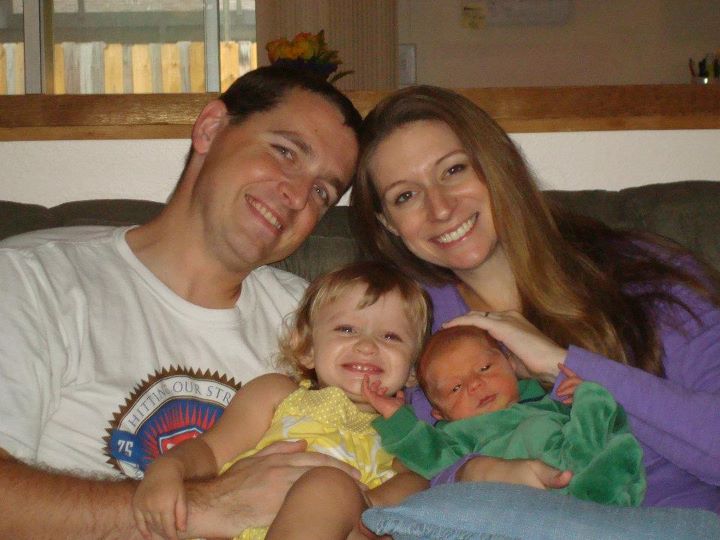Have You Noticed it Too?
Life Seems to Speed Up This Time of Year!
This article was originally written in September (2011), as you will see below. It is just as fitting in May of 2018. This time of year, many of my clients come into my office talking about how stressed they are about time crunches. Some even cancel sessions related to this. Every year, as schools in the northern hemisphere, where I live, wind up their academic years in May or June. So every organization on campus seems to have a special event. Every class has special projects or tests. It’s easy to be overwhelmed with it all. Here I will share Seven Steps to Overcome Overwhelm.
As autumn arrives in the northern hemisphere, and the sun recedes into the southern hemisphere, I notice year after year that life seems to speed up. Summer’s (supposedly) slower pace is gone. Schools are in full swing by now. Organizations resume their fall schedules. Leaves fall and beg to be raked. This autumn (2011), my son Chris got married to Abby in August and we had a local reception earlier this month. Then my son Mat t’s wife Kelly had
t’s wife Kelly had  a baby last week, plus we are preparing to move my mother into an assisted living facility in a couple of weeks. No wonder I’m tired and overwhelmed at times.
a baby last week, plus we are preparing to move my mother into an assisted living facility in a couple of weeks. No wonder I’m tired and overwhelmed at times.
How about you? Do you feel stretched too many directions at once? Have too many demands on your time and energy? Get impatient with your CASIGY (Creative, Acutely Aware, Super-Sensitive, Intense and/or Gifted You-s) body because it is so sensitive, so reactive? Get tired of having so much creativity that no one person could EVER carry out all your ideas?
If so, you may appreciate our Featured Article: Seven Steps to Overcoming CASIGY Overwhelm:
Do you find yourself feeling overwhelmed when life gets hectic-and that’s much too often? Is creative expression essential to your sense of well-being? Is daily time alone crucial to your inner balance? Do you quickly get overwhelmed when there’s lots of noise and activities going on? Do others frequently say that you’re “too sensitive”? And do you sometimes feel like “a freak of nature” because of these things?
I have good news for you! Your creativity, sensitivity or intelligence are gifts that the world sorely needs, not anomalies to be obliterated. It IS possible overcome your overwhelm without losing your creativity or your sensitivity. You can heal yourself from the effects of the things that overwhelm you, truly thrive instead of just survive, and yes, even achieve your creative, sensitive hopes and dreams.
The First Step to overcome your CASIGY overwhelm is to recognize what is going on.
As elementary as this sounds, we often try to skip over it. It is essential to admit it when you’re overwhelmed. It’s crucial to stop pretending that you’re keeping up, doing fine, going along smoothly through life, when you’re not-and admit it as soon as possible. How bad do things have to get before you acknowledge that they’re not going well? Do you have to crash and burn, or can you allow yourself to own up to the overwhelm without owning the overwhelm itself? In other words, when you recognize the truth of your situation, you can then begin to do something to change it. You can’t do anything about feeling overwhelmed until you acknowledge it!
Step Two is to de-escalate the overwhelm–
To get the body back in balance, take some long, slow deep breaths, drink a glass or two of water, close the eyes for at least a few seconds. Do one or more of these, and restore your CASIGY inner balance. This will help to get both of your feet back on the ground. For three easy ways to help with this that you can use any time and anywhere, there’s a printable tool in my CASIGY Tool Box.
If you have the luxury of more time, stretch some muscles, take a restroom break, eat a small, healthy snack, walk around the block, do something playful, get in nature for a few minutes. Gratitude and humor can also be powerful to restore inner balance quickly.
Step Three is to identify the source(s) of the overwhelm.
When you’re overwhelmed, it’s like your body’s circuits have overloaded, and your central nervous system has shut down some of them. And just like you do in your home when that happens, a good place to start is to check all our circuits: body, mind, soul, and spirit, to see which one(s) are overloaded. For example, you can check for too much noise, too much happening too fast, too many projects going at once, multi-tasking in too many ways, inner aches or voids, nagging doubts or worries, responsibility without authority, unrelenting stress, continual dissatisfaction with some area of your life, too much stress of any kind. It’s important to identify all the stressors that are impacting you at that particular point in time. You don’t need to do anything about them just yet; only identify them.
Step Four is to unhook from the overwhelm.
Just like you do when your house circuits are overloaded, when you discover which circuit(s) are overloaded, you then search to find what can be unplugged or turned off to free up the circuits for what is essential. I have learned to ask myself, “If I could get only one thing done today, which one would it be?” I then unplug from everything else, and focus on that one thing. Other useful questions can also be: What can wait, and what cannot? What will make a difference five or ten years from now? What must be done first, before other steps can be taken?
Step Five is to identify what your life is about.
What is your mission, and your vision for your life? What makes it worthwhile to get out of bed in the morning? What is your destiny? Why are you here on earth? What are your unique gifts, and how are you going to use them to benefit others? What unique challenges have you faced with creativity and aplomb, (and yes, blood, sweat and tears) and what have you learned (often at great cost in life, energy, soul & spirit), that you could bless others if you would be bold enough to share (our mistakes, of course, which leads to) what you have learned?
Step Six is to plan a pace and a way of living
that builds in the essential elements that you need to live that mission and vision, AND stay out of overwhelm at the  same time. It is much easier, and is often tempting to live like a rabbit, hopping here and there, setting the stage for continual overwhelm, than to plod along like a boring turtle.
same time. It is much easier, and is often tempting to live like a rabbit, hopping here and there, setting the stage for continual overwhelm, than to plod along like a boring turtle.
Yet, turtles have lots to teach about healing, thriving, and achieving. They’ll show you how to slow to the pace of completion. They’ll show you how to pull into your shell when you need a break. They’ll show you how to give a warning snap when your boundaries are threatened. They’ll show you how to go with the ebbs and flows in life. They’ll show you how to ground yourself with gratitude, and solitude when you are disconnected from your inner self. They’ll show you that a slow, plodding (boring) pace may, in fact, be the easiest and best way to arrive at your desired (creative, sensitive) desired destination.
Step Seven is to build in borders, margins, or blank spaces in our lives.
Carve out time to breathe, to reflect, to step back from the day to day grind of life and take a break. Create a change of pace. Do nothing for a little while. Experience new places and faces, and sometimes no faces at all. Take off-time, make down-time, in little bits of time, and longer, extended weeks or even (gasp)months. Balance the down times with exciting times, ‘up’ times, ‘on’ times, when you’re in flow, performing at your peak. Distinguish clearly between the on and off times.
I have shared with you a few of my thoughts about overcoming CASIGY overwhelm. I hope that you have had your creativity jostled –do any of these ideas appeal to you? What other ideas are rumbling around in YOUR HEAD about overcoming overwhelm? What has worked for you?
Would you please share some of your ideas about overcoming CASIGY Overwhelm with us? Share your thoughts in the comments below.

